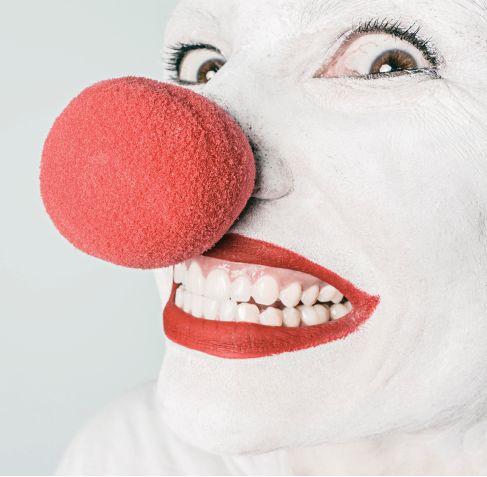| By Drew McCreadie LAUGHTER is the herpes of psychological phenomena: super-contagious, breaks out sometimes without notice, can be embarrassing, and can be painful but rarely kills you. But what makes laughter spread from one person to the other? We have all experienced the situation where one person starts laughing, usually uncontrollably, and soon everyone else in the room is having a chuckle as well. Part of the dynamic of laughter is that it exists most often in a crowd. |
| A group experience There is something very special about having a good laugh as part of a group. In fact, when you think about it, the impulse to laugh out loud (regardless what tweets and text messages may have you believe) is very rare when you are by yourself… unless you are crazy. Laughing is a social activity. Think of the number of times you have laughed in a movie theatre or at a comedy show, compared to your reaction watching the same things at home on YouTube. While it is possible to feel enjoyment in both situations, the chances that you actually LOL when in a group is much higher. Monkey brains at work There are various researches and experiments done regarding laughter, the reasons and causes of it. Naturally, humour is the cause of most laughter, but this may be a more ‘modern’ stimuli development. Laughter may have started as a show of relief when the saber-toothed tiger finally got tired of waiting for our great ancestors to fall out of the tree. Laughter may have originated as a release mechanism for the fight or flight instinct that our monkey-brains use to keep us alive. Basically, laughter was a way to communicate to the rest of the troupe that the danger had passed and that we could all go back to flinging poo and picking lice out of each other’s fur. Controlling laughter is power There is also research which shows that laughter is more prevalent with dominant people, suggesting that laughter may be a way of exerting control over others. Being able to make a group of people laugh certainly does attract attention to oneself, and makes one generally more attractive, so there is probably some truth in the theory that the ability to make others laugh is an indicator of manipulative prowess. Laughter can be used to ‘break the ice’ or to defuse confrontational situations. It is an effective tool that can be used to control the atmosphere in a group of people, and as such, can be a very powerful tool to wield. A joyous spasm However, at its root, laughter is a series of physical spasms that involve your abdomen, your face, your lungs, your throat, and when it’s a really good laugh, your bladder. Strange as it is, a good laugh causes your throat to constrict, making it harder to breathe, your diaphragm goes into convulsions, again disrupting your breathing. Your eyes may start to water, and, it is even possible that you may shit your pants… I have come close! But, with all that said, it still feels so good, and having a good laugh is actually something we seek out, and something doctors say is actually good for us. Just goes to show, we are very strange monkeys indeed. |























